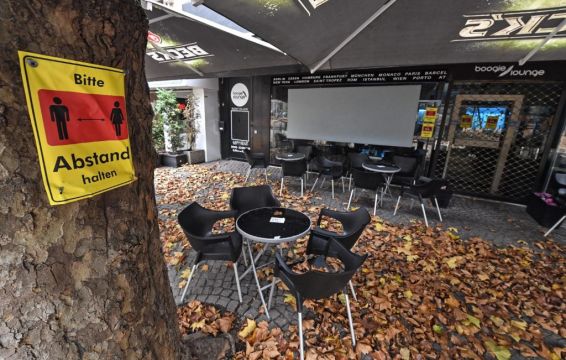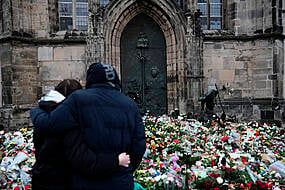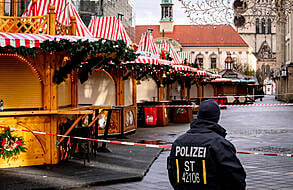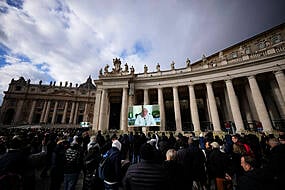Several European countries have tightened coronavirus restrictions as authorities across the continent scramble to slow a rapid rise in infections that threatens to overwhelm healthcare systems.
Germany launched its partial lockdown on Monday, with Austria set to follow suit later in the week, while Italy, Greece and Kosovo have also announced new measures.
In some places, the new rules – which vary in strictness – are prompting violent protests by people frustrated at once again having to give up freedoms.
But in many, experts are saying they should have come weeks ago – a reflection of the increasingly difficult balance many countries are struggling to strike between controlling Covid-19 and boosting already damaged economies.
“We are aware of the frustration, the sense of loss, the tiredness of citizens, also of the anger which is being manifested in these days, by citizens who find themselves living with new limits to their personal freedom,’’ said Italian Prime Minister Giuseppe Conte, as he defended his government’s decision to order new measures.
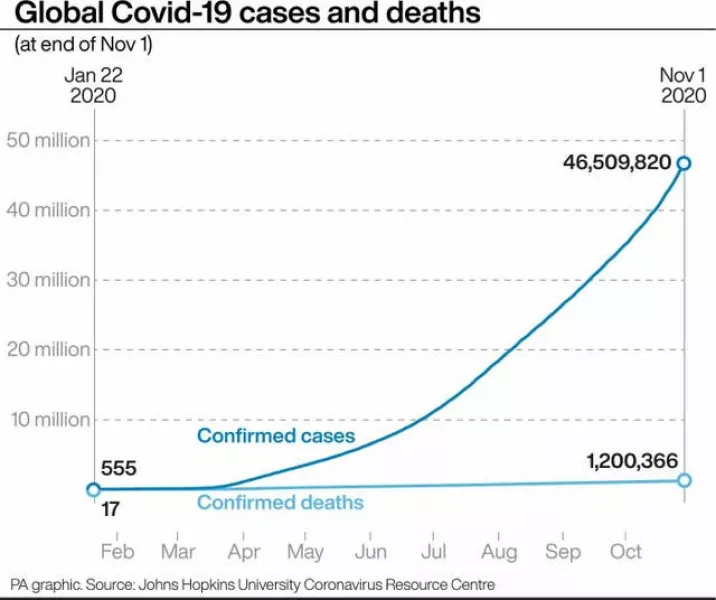
Restrictions have been slowly ramping up for weeks in many European countries, but coronavirus cases have continued to rise.
Overall, Europe has seen more than 250,000 confirmed virus-related deaths, according to Johns Hopkins University.
In Germany, restaurants, bars, theatres, cinemas, gyms and other leisure facilities have closed in a four-week “wave-breaker” shutdown that seeks to force daily new infections back down to manageable levels.
Germans have been asked not to travel, and hotels are barred from accommodating tourists.
German officials say they can’t track the source of three-quarters of new coronavirus cases and health minister Jens Spahn, who himself caught Covid-19, says he doesn’t know where he was infected.

Mr Spahn tweeted on Monday that the number of Covid-19 patients in intensive care has tripled in Germany over the past two weeks, and “we must break this momentum, together and with determination”.
Chancellor Angela Merkel’s chief of staff Helge Braun said the aim is to end the restrictions “in this strictness” at the end of November.
Schools, non-essential shops and hairdressers are staying open, and officials will review the situation after two weeks.
In Austria, restaurants and bars are being closed and cultural, sports and leisure activities are cancelled from Tuesday until the end of November.
Residents will be asked to stay at home from 8pm to 6am but they can go out to exercise or to work, among other things.

In Spain, legislators last week approved an extension until May 2021 of the country’s state of emergency, which puts into place a national nightly curfew and allows regions to impose more localised restrictions, such as limiting movement outside city limits on weekends.
Spain’s curfew drew weekend protests in a dozen cities, as protesters set fire to vehicles and bins, blocked roads and threw objects at riot police.
Countries including hard-hit Belgium, France, Poland and the Czech Republic have already implemented shutdowns of varying strictness.
In Italy, Mr Conte announced new restrictions including the closure of shopping malls at weekends and of museums.
Movement between regions will be limited and a “late-evening” curfew introduced, Mr Conte said, without specifying a time or saying when the measures will take effect.
Greece announced a localised lockdown in its second-largest city, Thessaloniki, and the northern province of Serres.
